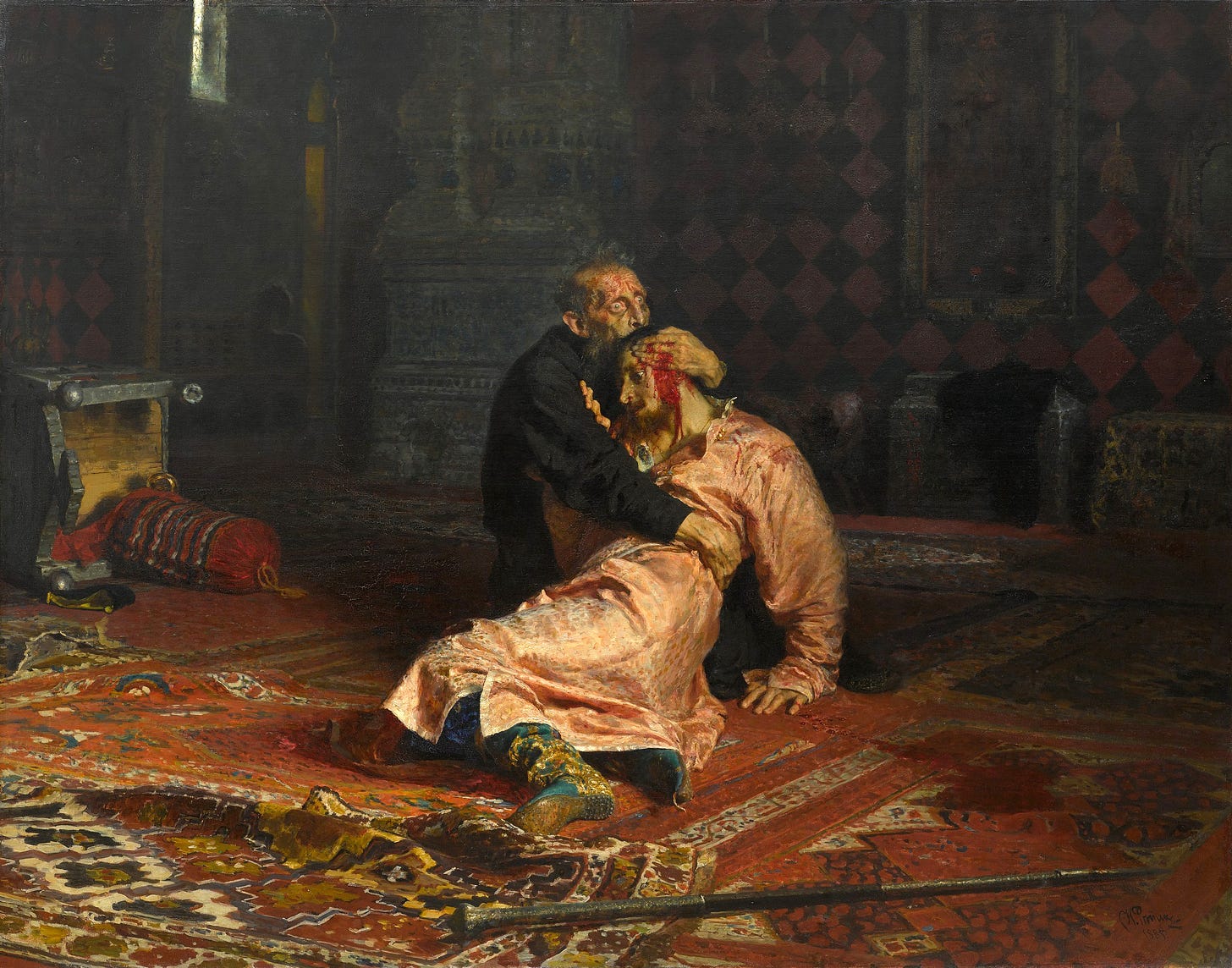The Hunting of the Bandersnatch
How can you deal with an entity that warps Reality around around you?
The new season of Black Mirror was just released on Netflix, and overall I think it’s something of a return to form in terms of the average quality and interestingness of the ideas they explore. The second episode, Bête Noire, in particular has had my mind ruminating. This post will have little to do with the actual episode, but will contain abundant spoilers, so I’d encourage you to watch it first if that’s a concern.
The gist of the episode is that Maria is a rising star at a candy company, whose life gets thrown into turmoil when Verity Green, a former high school classmate who was bullied, unexpectedly shows up to her work applying for a job Maria did not know was on offer. What follows is a week of gaslighting and anomalous occurrences where everything seems to go wrong for Maria, despite her doing the “right” things. And at the center of it all is Verity, who seems to get more and more of what she wants at Maria’s expense. Eventually, Maria figures out that the pendant Verity wears is somehow “controlling” Reality, which is eventually revealed to be by a powerful computer that uses the Mandela Effect to “tune in” to universes where what Verity says has always been true. After getting bored with essentially infinite power, Verity decided to take revenge on the people who bullied her in high school, and that’s why she’s entered Maria’s life. Maria only learns this after she discovers Verity’s main high school bully committed suicide last week, and so now Verity is going after anyone who started or spread rumors about her, with her main goal being Maria’s ruin as well.
But I don’t think the interesting part of this episode is anything to do with the Mandela Effect. Instead, I think this is a thinly veiled exploration of the OG infohazard - Roko’s Basilisk. For the blissfully unaware, the Basilisk is a thought experiment that posits a future superintelligent AI will punish anyone who knew about the potential of AI and didn’t help bring it into existence. The logic goes that a future AI is so much better for humanity than our current state, the AI would have an incentive to retroactively coerce belief and obedience by threatening anyone who stood in its way, even preemptively. Most people recoil at the absurdity. But the potential to terrify isn’t that it’s likely. The fear occurs because once you’ve heard it, you can’t unthink it, so now you’re automatically in a reality where this is more likely to come to pass.
Why do I think this episode is about Roko’s Basilisk when the vengeful demon is a human, and the technology that powers her is only seen briefly and does not have much plot relevance? The character’s name itself is telling: “Verity” means truth and “Green” is the traditional color of basilisks. And I think naming a character ”LessWrong Basilisk” would be too unsubtle for even the average Netflix consumer. She is also “scarily good” with computers; Maria suspected she was altering digital calendars and records right from the start. The quantum computer which Verity created does not seem to have a personality or desires, therefore it is not “intelligent” to our eyes, and those things are instead provided by Verity since revenge is a much more comprehensible motivation than being subpar at utility-maximizing. But what if the quantum computer does have motivations? Maybe the fact that Maria learns how to use the device just before Verity summons cops to arrest her is a coincidence that the computer itself allowed so that Verity could actually be killed by her overconfidence. Much like the One Ring choosing Bilbo as a more worthy vehicle than Gollum, so too was Maria “chosen” by the computer to enact more massive “improvements” to Reality. We’re not sure that Maria is actually going to be a benevolent person with Godlike power, but we can assume she’ll be better than Verity was (and the computer may end her if “Empress Maria” proves unvirtuous).
Reality as a Green Mirror
I have been pondering this episode of Black Mirror because it raises questions of what particular coincidences define our collective reality, and how attention shapes them. Now, I vividly remember after learning about Roko’s Basilisk that the first thing I thought was that Roko is thinking too hard and needs to get a life, specifically, a modern one. But the second thing I thought was that a particularly effervescent and well-appointed wyrm would fit right in at the Palace of Versailles, making it a Rococo Basilisk. Unfortunately for the timeline, I was not the only person to make this joke, with it famously becoming the reason Elon Musk and the musician Grimes became a couple. If the Mandela Effect’s power comes from people agreeing on particular events constituting Reality, then the fact this stupid joke will “always” be associated with those two has locked the narrative and attention of this timeline onto their specific actions.
The craziest thing about their relationship to me, personally, is that I have no memory of Grimes before she became associated with Elon. I have terrible taste in music, so it does not surprise me that I wouldn’t know about her career, but it still is crazy to me that a “super-cool goth girlfriend” was seemingly conjured from the Void and “immediately” took up with Musk, almost as if Musk had access to Verity’s technology. Given what Musk has chosen to use that power for in the last few months, I don’t think his actions are leading to a better future for everyone. However, the undisputed result of their union was “X Æ A-Xii,” and much like whatever was brewing in the Wuhan Institute of Virology at the exact same time, the timeline would never be the same once the world was exposed to that bit of biological material.
When two people with so much “Main Character Energy” get together, that’s inherently warping to narrative fabric of Reality - you will pay attention, regardless of your prior desires. So, at the same time I learned how they got together, which reminded me that I had also thought of Rococo Basilisk, and the power of puns became apparent. If the timeline is controlled by all the minor coincidences that explain our particular Reality, then knowledge of this coincidence has irreparably ruptured the divide between “Elon” people and “Grimes” people. The people who knew about Grimes for years may have grown up in a Reality somewhat different from mine - I couldn’t know since Reality has to be self-consistent, and even as a historian I don’t care about the Past as much as the Future.
Given that, I think it’s important to think about solutions. There is no doubt that Elon is and will be important to the future, so maybe we should be thinking about how to make the future better. It’s something I’ve been considering for a while:
And given its importance, I think we should consider whether heroism (heroinism?) is necessary:
Still, my most earnest hope is that everyone involved will fade to irrelevance, and we can live in less interesting times. That’s probably impossible, given how singularities alter the landscape of possibilities, but I suspect it represents the modal perspective of Americans, with the rest of the world looking on in bafflement at our internal political psychodrama.
Focus On What You Want To See More Of
As I had thoughts of what to do about being in a timeline defined by the Basilisk, I wondered how I could kill/forget it Once and For All. If it was drawn to timelines when someone thinks about it, then what could Erase the thought? Hmm, perhaps erasure is simply the wrong way to think about this. For instance, since the glare of a basilisk typically only works in the light, perhaps we can simply Overshadow it with a more powerful Story. That would allow one to trap the Basilisk in one Timeline where something is powerful enough to contain it Forever. But what story could overshadow, and thus contain such a foolish Demise? Well, the Warhammer 40K universe is sufficiently grimdark that the Basilisk looks tame by comparison, and I have no problem imagining a child of Musk and Grimes on the Golden Throne. If Elon is the one driving the Narrative, I expect any Muskovite Dynasty to end in tragedy. After all, there are historical precedents.
But I don't have to write That story. I think I'd rather look forward to a world where Grimes is famous and Musk is only remembered as a great innovator in spaceflight who lost his way in a sad attempt at mass mental manipulation. I wondered what would be the best way to get to the Grime Timeline, and asked a significantly less online, but more musically-inclined friend, what his memories of Grime and Elon were. He confirmed that he knew about Grimes right from the start of her career, and was as surprised as me when she and Elon got together. Then I started to explain Roko’s Basilisk and he asked, “did you say Rococo Basilisk?” despite never having heard of it before! He simply saw the linguistic parallelism as obvious, and assumed he had misheard me. He also had never heard it before, and simply knew that there was a “joke” that had convinced Musk and Grimes to start conversing. When he was told the context behind Roko’s Basilisk, he also confirmed it is an incredibly stupid thing for anyone to worry or think about.
Now that I had a friend confirm there were better timelines available (in the sense that we are not beholden to notice or care about unusual coincidences), I asked what he would do if there was a vindictive superintelligence operating as a strange attractor in probability space. He pointed out that if there’s malevolent attractors, there must equally be beneficial ones, and since there are multiple Musklings, it’s basically guaranteed some will embrace the Light and others the Dark. If Main Character Energy is powered by our collective attention, perhaps Grimes was summoned not to empower my fears, but to bring culture and Culture. Considering that much more unites Humanity than divides us, it makes sense to believe in collective Hope over personal Despair. I think focusing my attention on Art over Artifice is how I personally will shift my attention from technofascist dystopias to a pluralist world of individual and cultural flourishing. Just because technology has the potential to destroy us, doesn’t mean we have to use it that way. I know the history of Humanity is one of increasing technological sophistication, and despite many modern problems, the long arc of History is one of increased quality and quantity of life for everyone. Though less entertaining, White Mirror would be a more realistic show. In addition, focusing on the brighter future will also keep my eyes away from any basilisk petrification rays as well!








I immediately knew the "modern" life hyperlink was a Rocco's Modern Life reference and this made me smile ear-to-ear, so well done on that alone. Also, while I'm not surprised you hadn't heard of Grimes, the discussion of the interaction between advanced tech and humans compels me to direct you toward Janelle Monae and her album The Archandroid, which I think you'll find interesting. (Janelle Monae also did a visually stunning collab with Grimes called "Venus Fly" which you should also check out.)